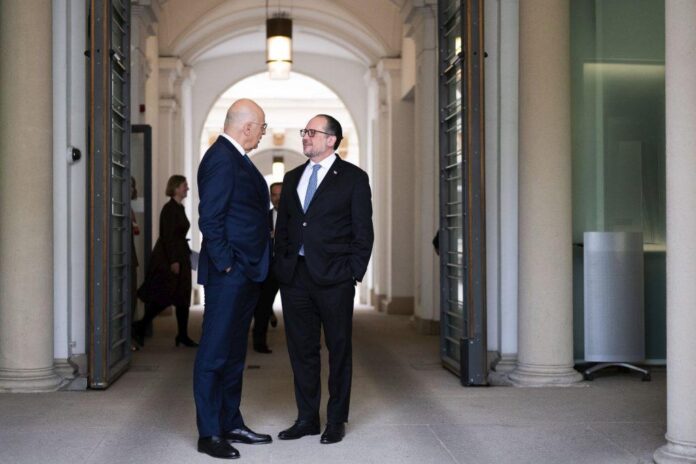A museum in Austria plans to send two pieces of the Parthenon Marbles back to Greece.
In a news conference held yesterday, May 2, Austrian Foreign Minister Alexander Schallenberg announced that the Kunsthistorisches Museum in Vienna is in “technical discussions” with the Acropolis Museum about “mutual loans of the Parthenon frieze.”
“I am very hopeful that the talks can move on very quickly and the marbles will be on display in Athens,” Schallenberg said. “The common goal,” he added, “is to contribute to the understanding of its universal significance for European cultural heritage.”
Representatives from the Kunsthistorisches Museum did not immediately respond to a request for additional details about the “mutual loans.”
Standing at the rostrum with Schallenberg was the Greek Minister of Foreign Affairs Nikos Dendias, who expressed his “deep satisfaction” with the deal. “This, for us, is of huge, huge importance,” he said.
Αllow me to express my deep satisfaction for the announcement having to do with the Parthenon fragments, the two fragments here in Vienna. This for us is of huge importance (statements following meeting with MFA of Austria @a_schallenberg). pic.twitter.com/VtgAwqokFj
— Nikos Dendias (@NikosDendias) May 2, 2023
Though the Kunsthistorisches Museum owns just two small fragments from the 2,500-year-old Parthenon, the institution’s repatriation comes at a crucial time for Greece as the country seeks to reunite the remaining pieces of the frieze that once wrapped the Parthenon Temple.
In 2021, the Antonino Salinas Regional Archaeological Museum in Palermo, Sicily, announced plans to return its own small section of the marbles to Greece on a four-year loan. Last December, Pope Francis ordered the Vatican to give back three additional marble pieces. (They were officially handed over in a ceremony this March.)
But those deals are minor compared to the one Greece is trying to strike with Britain, which owns the largest collection of Parthenon marbles outside of the objects’ home country. The sculptures were removed in the early 19th century, when Greece was under Ottoman rule, on order from the Scottish nobleman Lord Elgin. They’ve been housed at the British Museum since 1832.
Greek officials say they hope Austria’s move will restart repatriation conversations with Britain. For decades, Greece has asked for the so-called “Elgin Marbles” to be returned, but Britain has never agreed. In recent months, the two countries have engaged in “constructive discussions” about a potential deal, but that remains far off, according to recent reports.
“This, we believe, will create the momentum,” Dendias said earlier this week. “We can use in our discussions in London.”

























